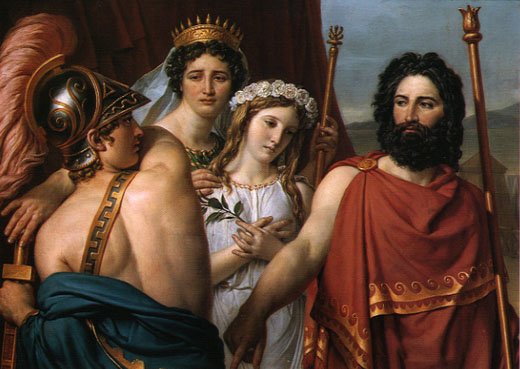Was Ancient Epicureanism A Suicide Club? Did the Priests do Iphigenia A Favor?
We are told incessantly by the usual authorities that Epicurus held that pleasure is the absence of pain, and that when we feel no pain we have no need of pleasure. Wikipedia: “Epicurus argued that when we do not suffer pain, we are no longer in need of pleasure, and we enter a state of ataraxia, “tranquility of soul” or “imperturbability.” Philosophy.lander.edu: “Pleasure is the absence of pain or the avoidance of pain, rather than a positive satisfaction.” Epicurus.info (added heading to Cicero): “The highest form of pleasure is the absence of pain.” Stanford Encyclopedia of Philosophy: “The philosophy of Epicurus (341–270 B.C.E.) was a complete and interdependent system, involving a view of the goal of human life (happiness, resulting from absence of physical pain and mental disturbance) Philosophy 143 Lecture at UC-Davis: Epicurus, on the contrary, maintained that the absence of pain in the body and of disturbance in the soul is a pleasure.
And in the clearest possible terms:
Suite101.com “In other words, pleasure simply is the absence of pain, no more, no less.
Really? If this interpretation is correct, does it seem odd that Epicurus did not end his own life by suicide to achieve perfect happiness more quickly? Does it seem odd that Lucretius condemned the priests at Aulis for putting Iphegenia to death, if all that they did was deliver her to a state of the highest pleasure? After all, Authorized Doctrine Two is very clear: Death is nothing to us; for that which has been dissolved into its elements experiences no sensations, and that which has no sensation is nothing to us.
Was Epicurus guilty of the typical hypocrisy that we attribute to cult leaders today, that of advising one thing to his followers and leading a different course himself? But if so, where is the evidence that suicides were common among his followers as a way to achieve happiness? In fact, Vatican Saying 38 appears to advise against taking one’s own life: VS38. He is of very small account for whom there are many good reasons for ending his life.
What are we to make of what appears today to be a confusing paradox – this, in the writing of a man who, according to Diogenes Laertius, “was so lucid a writer that in the work On Rhetoric he makes clearness the sole requisite.”
I have touched on this topic many times before, and I will not try to bring to a conclusion here. But in a Facebook post today I posed the question this way, in the form a hypothetical grade-school teacher might have addressed a young class of ancient Epicureans:
“Class! Pay Attention!
If the greatest pleasure is the absence of all pain,”
AND
If the dead experience no pain at all – “
THEN – Pay Attention!
Why is suicide not the greatest of pleasures???
Answer this question in five sentences or less or you have to stay after school!!!
Of course the hypothetical isn’t necessary, but this is a question that every fan of Epicurus should be able to explain with clarity.

